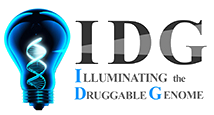Drug results: 4
| caffeine | A methylxanthine naturally occurring in some beverages and also used as a pharmacological agent. Caffeine's most notable pharmacological effect is as a central nervous system stimulant, increasing alertness and producing agitation. It also relaxes SMOOTH MUSCLE, stimulates CARDIAC MUSCLE, stimulates DIURESIS, and appears to be useful in the treatment of some types of headache. Several cellular actions of caffeine have been observed, but it is not entirely clear how each contributes to its pharmacological profile. Among the most important are inhibition of cyclic nucleotide PHOSPHODIESTERASES, antagonism of ADENOSINE RECEPTORS, and modulation of intracellular calcium handling. |
|
| ketoxal | modifies guanine containing oligoribonucleotides by reacting selectively with guanine in polynucleotides; structure |
|
| lurbinectedin | Lurbinectedin is an alkylating drug that binds guanine residues in the minor groove of DNA, forming adducts and resulting in a bending of the DNA helix towards the major groove. Adduct formation triggers a cascade of events that can affect the subsequent activity of DNA binding proteins, including some transcription factors, and DNA repair pathways, resulting in perturbation of the cell cycle and eventual cell death. |
|
| trabectedin | A complex structure that includes isoquinolines joined by a cyclic ester; it is a DNA-binding agent and guanine N2 alkylator derived from the marine tunicate, Ecteinascidia turbinata. Trabectedin is used for the treatment of advanced soft-tissue SARCOMA, after failure of ANTHRACYCLINES or IFOSFAMIDE drug therapy. |
|



